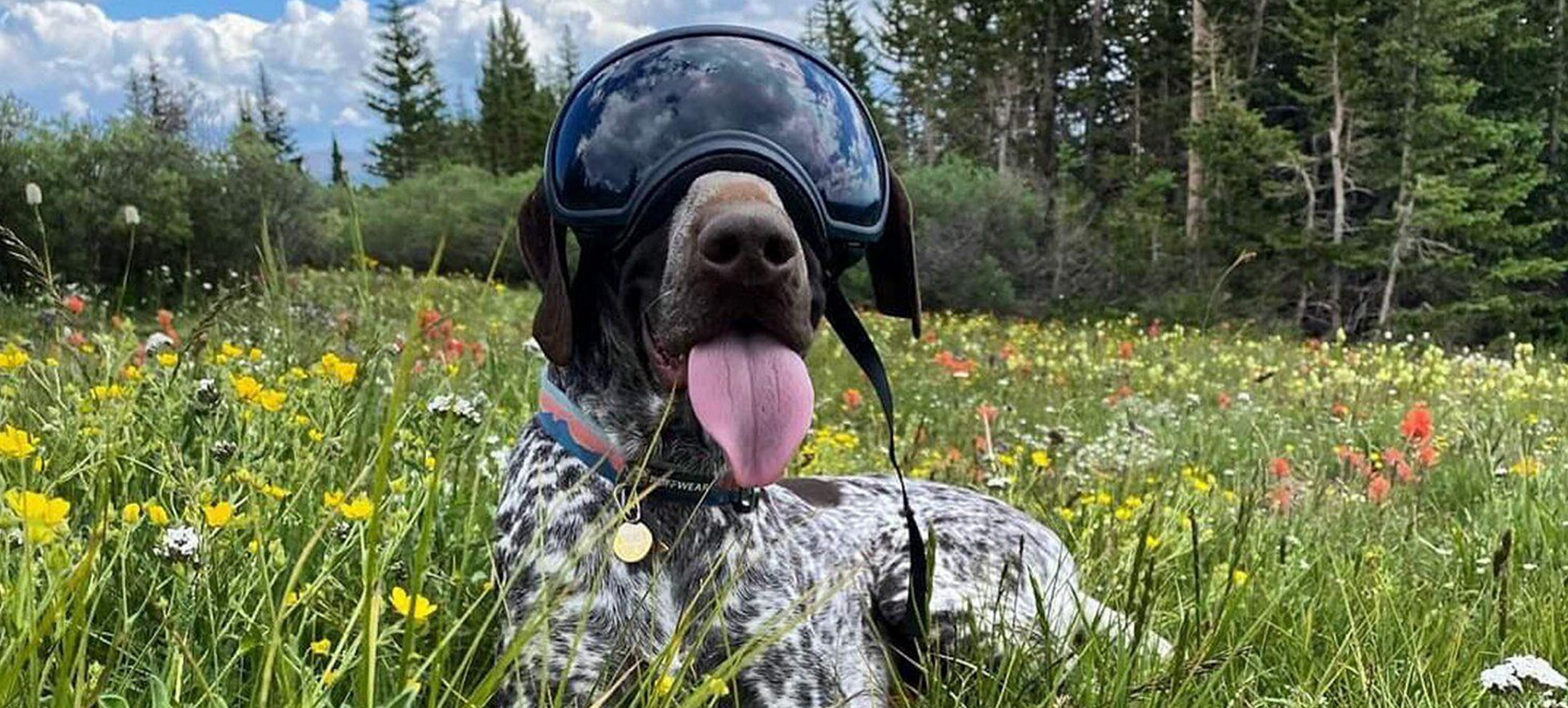Meet Darwin’s Bee Dogs
With wet noses, wagging tails, and a home in North Carolina, Darwin’s Bee Dogs aren’t your typical Texas Parks and Wildlife Foundation (TPWF) ambassadors, but these talented German shorthaired pointers are best in show for their groundbreaking work with bumblebees.
Founder Jacqueline Staab, an ecologist and bee advocate, has created a buzz with her innovative detection dogs, trained to find bumblebee nests. Darwin’s Bee Dogs are blazing trails that humans and technology have yet to replicate. “These dogs give us and other collaborating scientists access to wild nests like we’ve never had before, allowing us to conduct groundbreaking research on these imperiled pollinators.”
Staab’s journey started while running her own farm in Richlands, North Carolina. “I became a certified beekeeper and couldn’t learn enough about these astounding little insects keeping the world afloat. Bees became my passion,” says Jacqueline. “That’s when it hit me. If I can help save the bees, I could help protect the entire ecosystem, safeguarding not only the environment but all the creatures that depend on it.”
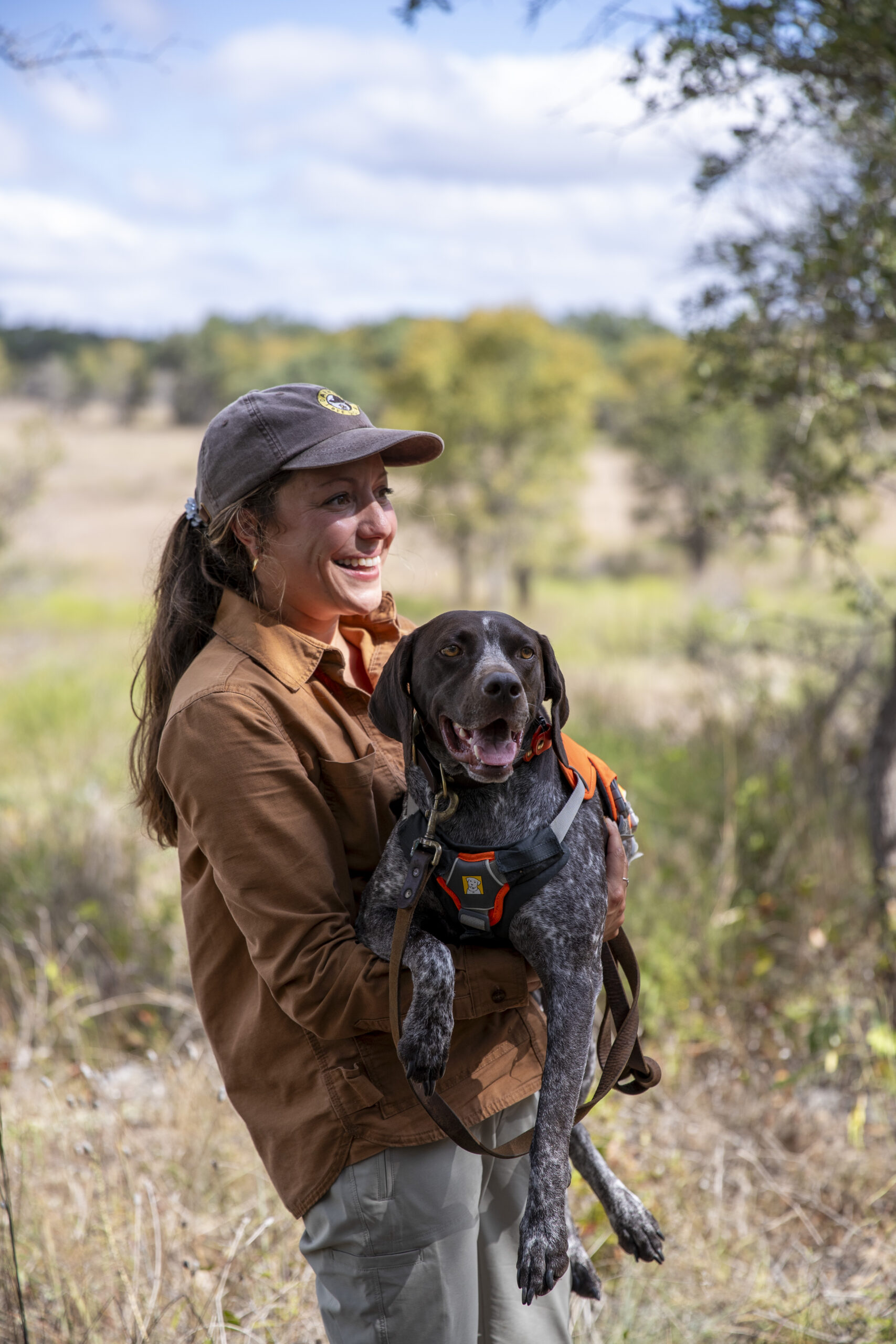
Photo by Maegan Lanham
Jacqueline bee-lined her way to Appalachian State University in Boone, NC, where she pursued her bachelor’s degree in ecology, evolution, and environmental biology. As part of her studies, she joined an ecology lab focused on bumblebees, where she immediately felt called to action. While pouring over existing bumblebee research, Jacqueline noticed a wide gap of knowledge as it relates to bumblebee nesting and overwintering site ecology.
“I wanted to help fill in these knowledge gaps about nesting and overwintering. After trying several time-consuming and unsuccessful detection methods, I came across a paper where the British Department of Defense trained a bee-seeking dog in 2011 with some success. I jumped at the opportunity and decided to make training and deploying detection K-9s to conserve and research bees my masters project, and, ultimately, my career and life’s mission.”
Jacqueline developed a novel detection K-9 training program specific to Bombus (bumblebee) species detection, and she found her perfect K-9 trainee in a German shorthaired pointer puppy with a real nose for science. She named him and her namesake company, Darwin’s Bee Dogs, after famed biologist Charles Darwin.
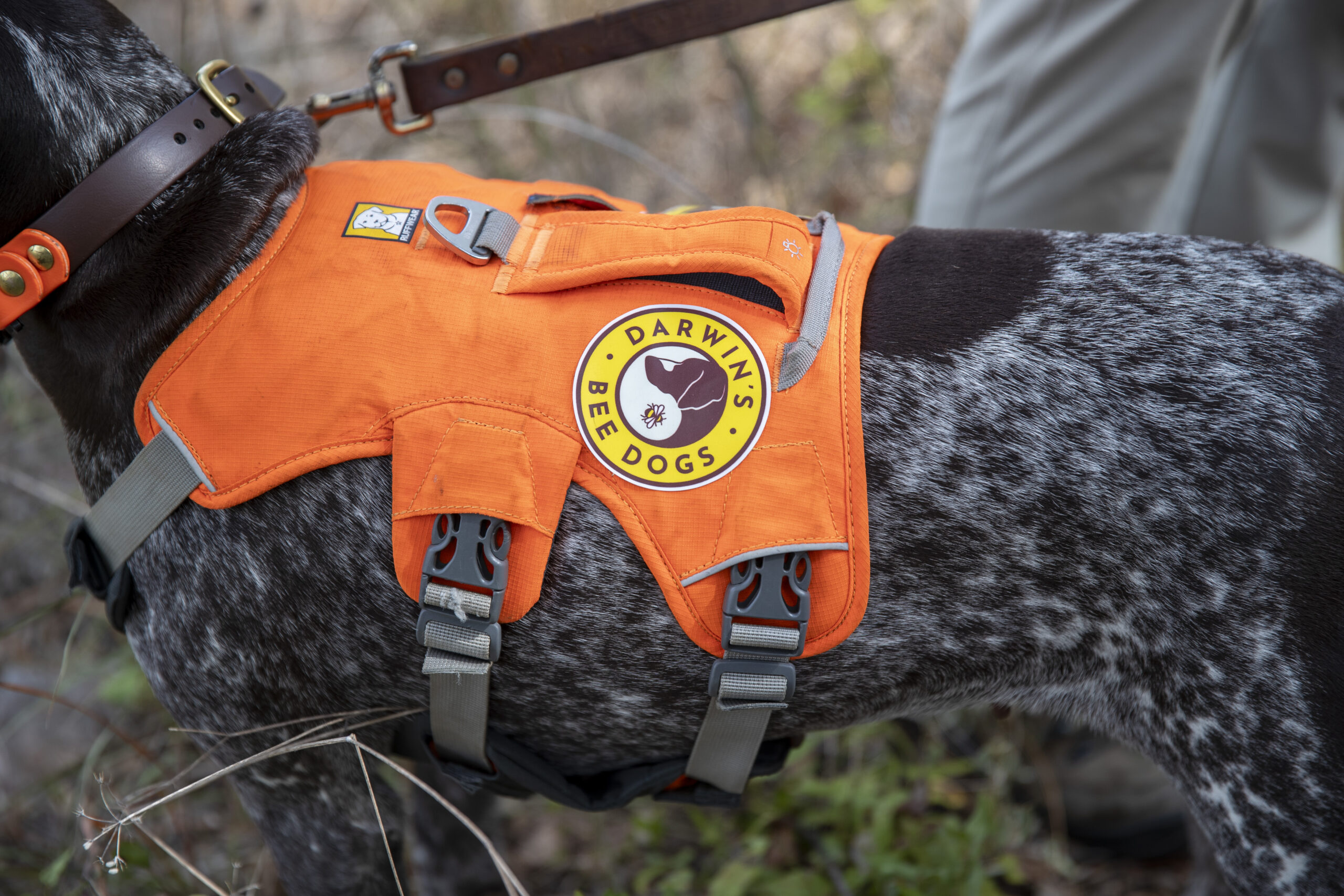
Photo by Maegan Lanham
Darwin’s evolution from precocious pup to America’s first bumblebee nest detection dog has been nothing short of scintillating, and Staab’s pioneering work with Darwin has garnered international buzz. Darwin’s Bee Dogs has been featured on national news outlets, including The Weather Channel, NPR, NBC, and even China Global Television Network, and interest in this promising new approach has taken the conservation detection duo far from their home in North Carolina. While on the hunt in the mountains of Colorado, Staab was an integral part of an international team of researchers who identified Bombus incognitus, a newly documented bumblebee species!
Sadly, just as Darwin was gaining his bumblebee-finding footing, he passed away unexpectedly, but his curious spirit lives on through the important conservation detection work of two new Darwin’s Bee Dogs recruits and German shorthaired pointers, Jane and Gerty (named after scientists Jane Goodall and Gerty Cori).
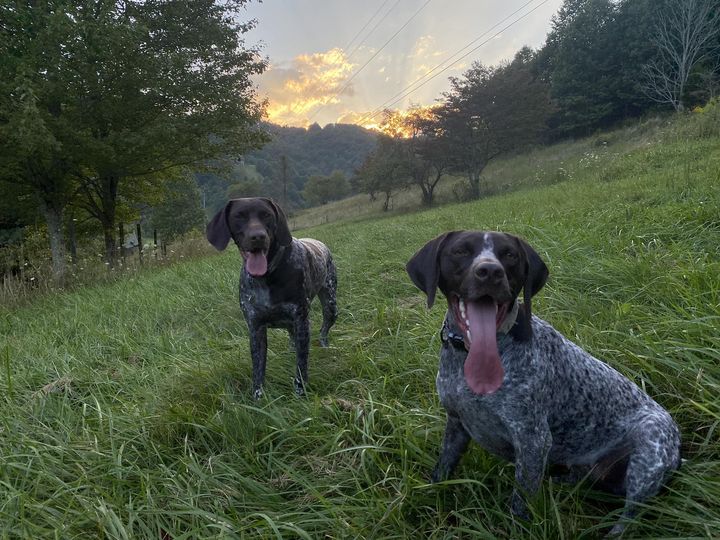
Jane and Gerty
“In two short years, Darwin accomplished more than most dogs do in a lifetime. In addition to helping us gain invaluable new information about bumblebee nesting ecology, he also served as an ambassador for native bees and brought a lot of attention to their cause,” said Jacqueline. “With Darwin’s amazing work as a foundation, there’s no telling how much more we can accomplish towards saving our precious pollinators.”
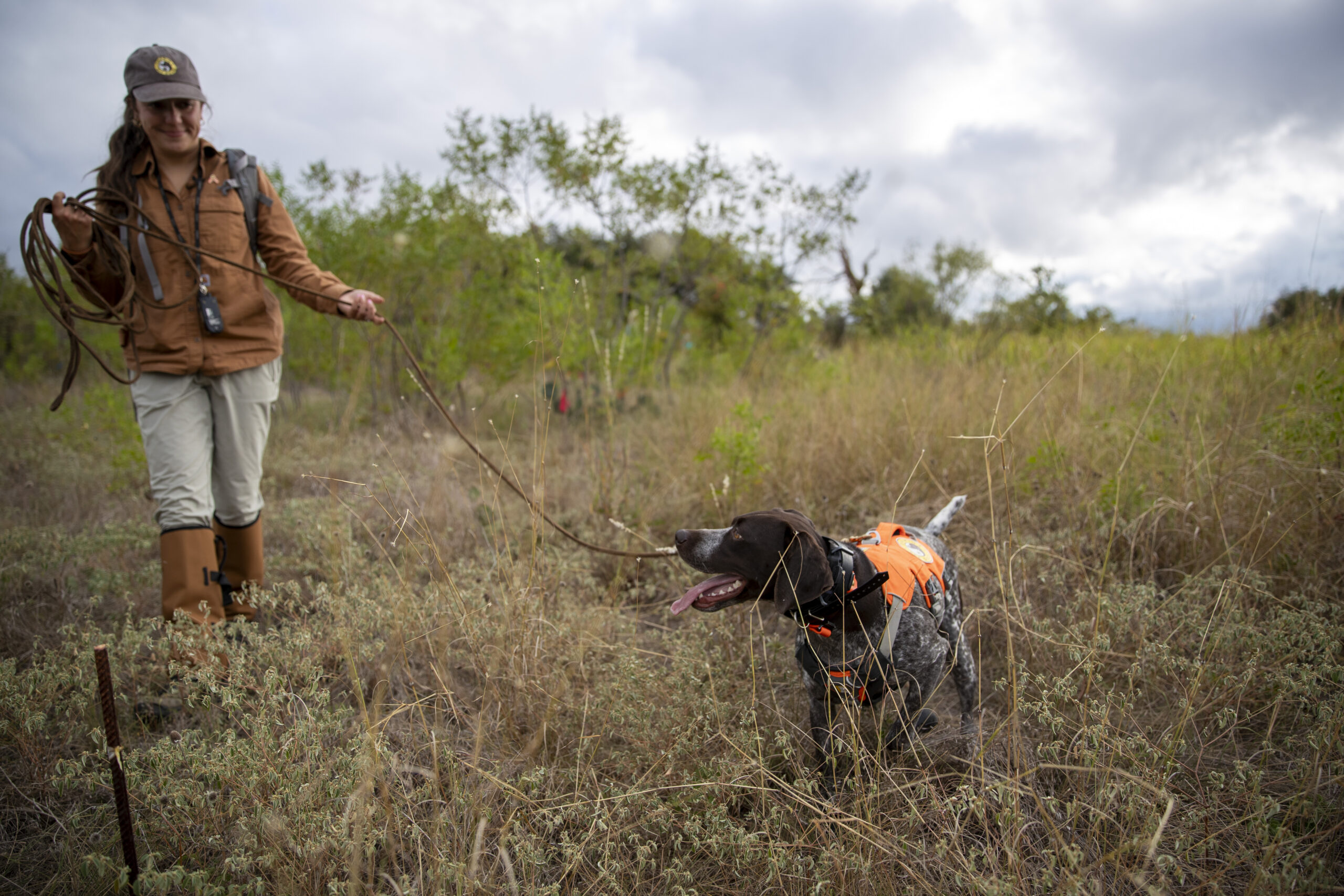
Photo by Maegan Lanham
“These dogs give us and other collaborating scientists access to wild nests like we’ve never had before, allowing us to conduct groundbreaking research on these imperiled pollinators.”
This fall, Darwin’s Bee Dogs are busy running the untamed fields of Texas to detect the nests of a bumblebee in decline, the American bumblebee, and potentially the rarer variable cuckoo bumblebee, which also uses these nests. TPWF is proud to fund this critical research in collaboration with Texas Parks and Wildlife Department and bee experts across the state. This project will help determine the population status of several pollinator species of greatest conservation need in Texas to inform conservation planning efforts.
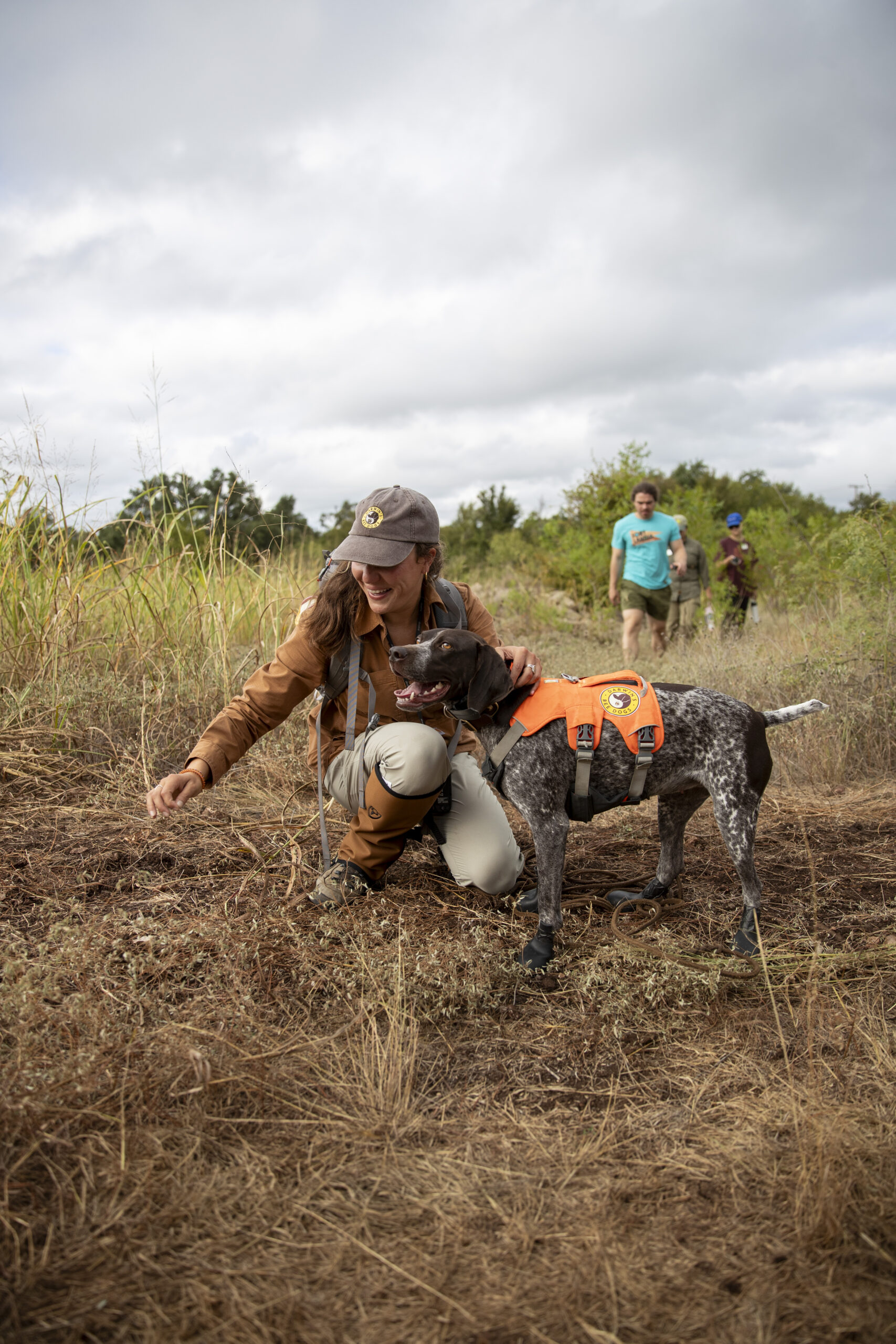
Photo by Maegan Lanham
It’s all part of TPWF’s new Pollinators & Prairies program, which is dedicated to conserving Texas’ vital native pollinators and iconic grasslands through research, outreach, and on-the-ground conservation action. The program is generously supported by presenting sponsor H-E-B, with additional funding from Phillips 66.
“This research is so critically important because our pollinators and prairies sustain us. Without the health of our pollinators, we risk losing the plants that define our local landscapes, weakening our ability to protect ecosystems, threatening our food supply, and a cascade of other negative consequences. They are critical to our health. My goal is to help people to realize just how connected everything is, how these little creatures are carrying us, and how we can do our part to help them, too.”
Learn more about the work of Darwin’s Bee Dogs and follow along on their outdoor adventures!


